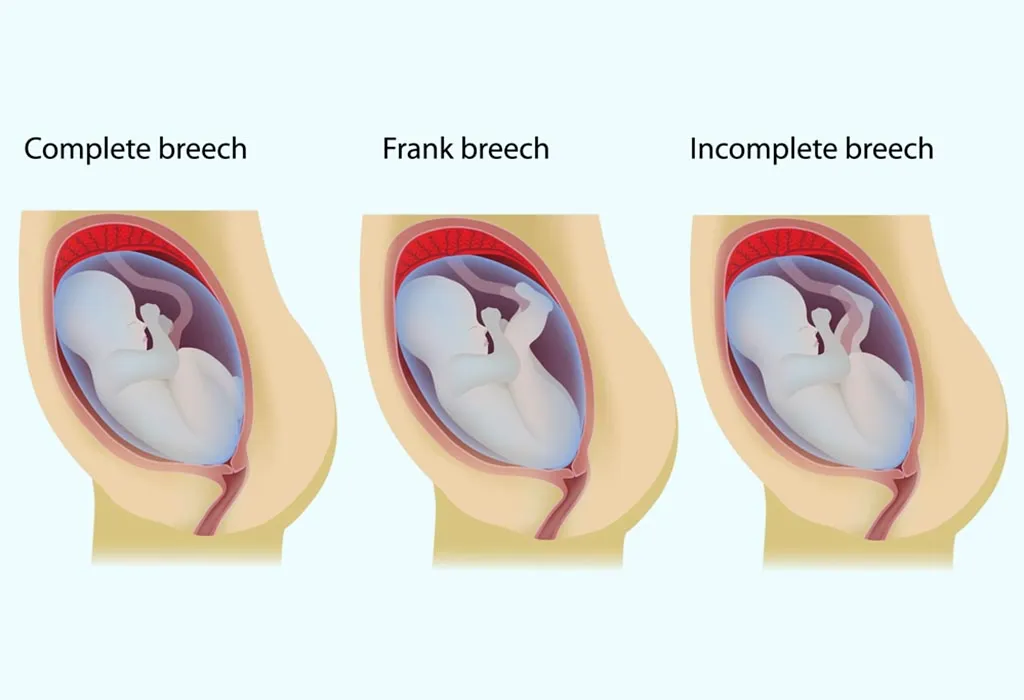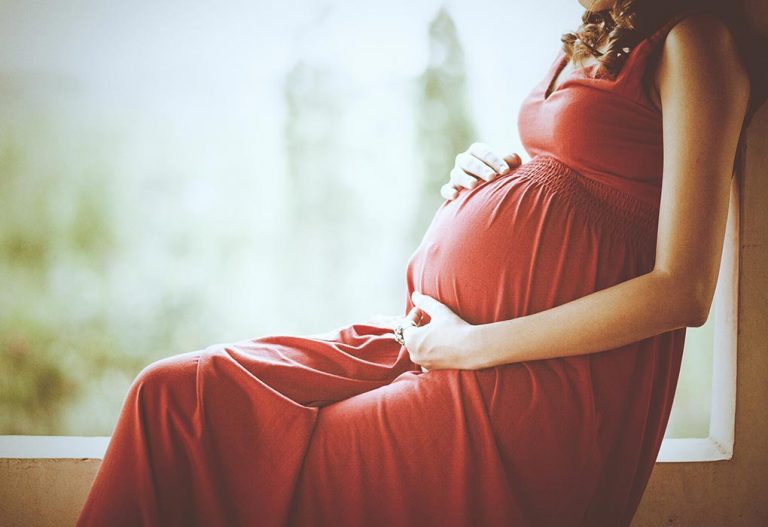List of 10 Different Kinds of Pregnancy
Pregnancy seems like a simple term, doesn’t it? It’s something that is supposed to happen naturally when a couple is ready to start a family. However, getting pregnant can involve a lot of time, energy, and patience, and even then, there are different types of pregnancies that may occur. Yes, there’s more than one kind!
There are various reasons why a certain pregnancy can take place, such as physical differences in the reproductive system, multiple eggs being released or multiple sperm fertilising the same egg, health problems, and more.
Read on to find out more about the more about different kinds of pregnancies in women.
Different Pregnancy Types in Women
If you want to know what types of pregnancies are there in the world, then this will be your quick guide to different types of pregnancy and their meanings. Let’s check them out, shall we?
1. Intrauterine Pregnancy
This is a normal pregnancy in which the fertilized embryo (or embryos) is implanted inside the main cavity of the uterus, and the placenta eventually forms to help the embryo develop into a baby.
2. Molar Pregnancy
Molar pregnancies are pregnancies in which the placenta and embryo develop abnormally, and the placenta tissue may become a tumour. A molar pregnancy is of two kinds – complete and partial. A complete molar pregnancy occurs when the placenta is formed abnormally, but there is no embryo to support it. A partial molar pregnancy occurs when both the placenta and embryo are abnormally formed. A molar pregnancy occurs when the fertilized egg has an extra set of chromosomes. This eventually leads to a miscarriage or a planned abortion, as the foetus is unable to develop in a safe and healthy manner.
3. Ectopic or Tubal Pregnancy
An ectopic pregnancy occurs when the fertilized egg gets implanted outside the main cavity of the uterus, such as the neck of the uterus or the abdomen. In most cases, the embryo gets embedded in the Fallopian tube (which transports the egg into the uterus), thus causing a tubal pregnancy. An ectopic pregnancy is unsafe for both the mother and the baby, as the baby cannot develop properly, and the mother’s life might be harmed. If the miscarriage does not occur naturally, an abortion may be required.
4. Intra-Abdominal Pregnancy
An intra-abdominal pregnancy is caused when the embryo gets implanted outside the uterus in the abdominal cavity. Usually, the embryo is implanted in the uterus or Fallopian tube first, but it slips out through a tear or rupture. For example, the scar left behind after a C-section may weaken and tear, allowing the foetus to slip into the abdominal cavity. Some intra-abdominal pregnancies remain undetected, and there are chances of the foetus not surviving. A complete hysterectomy may be needed after birth.
5. Singlet Pregnancy
A singlet pregnancy is when one egg is fertilized by one sperm, and only one foetus develops.
6. Multiple Pregnancy
Multiple pregnancies occur when two or more embryos are formed and implanted in the uterus. Let’s take the example of twins. If one egg that is fertilized by one sperm divides into two embryos, then identical twins are formed who share the same genetic makeup. If two separate eggs are fertilized by two separate sperm, fraternal (non-identical) twins are formed, and they do not share the same genetic makeup. Fertility treatments may result in multiple foetuses.
7. High-Risk Pregnancy
A pregnancy is termed as high-risk when the woman is above a certain age (around 35), is diabetic, has multiple foetuses, or any health conditions that could affect her, the foetus, and the overall pregnancy. In some cases, if medication is required to control the health conditions, the pregnancy could be termed as high-risk. A history of any prior complications in childbirth could also lead to a high-risk pregnancy.
8. Lupus Pregnancy
A lupus pregnancy is a type of high-risk pregnancy. Lupus is an auto-immune disease that can complicate pregnancy for a woman by increasing the risk of the woman developing preeclampsia. If a woman has been diagnosed with Lupus, it is important that the pregnancy be well-planned so as to avoid surprises and complicated pregnancy.
9. Chemical Pregnancy
This is the clinical term for the loss of a pregnancy that occurs shortly after implantation. The egg is fertilized and implanted in the uterus, but it then stops growing and developing soon after. This loss generally takes place before an ultrasound can detect the heartbeat of the foetus.
10. Breech Pregnancy
A breech pregnancy occurs when the foetus’s head is positioned at the top of the uterus, and its feet or bottom are towards the cervix and birth canal. In a normal pregnancy, babies will move with their heads towards the birth canal to prepare for birth. There are three types of breech pregnancies, depending on the position of the foetus – complete, frank, and incomplete (footling breech). A breech pregnancy can be caused by multiple foetuses present (twins, triplets, etc.), an abnormally-shaped uterus, placenta previa, the presence of too much or too little amniotic fluid that affects the foetus’s movement, and more.
What Are the Symptoms Associated With Other Types of Pregnancy?
While a typical pregnancy is well-known, there are other types of pregnancies that can occur, each with its own unique set of symptoms and considerations. Let’s check in detail the symptoms of other pregnancies.
1. Intrauterine Pregnancy Symptoms
- Mood swings
- Lower backache
- Headaches
- Frequent urination
- Light spotting
- Tender breasts
- Dark areolas
- Food cravings or aversions
- Nausea
- Vomiting
- Missed period
2. Molar Pregnancy
- Vaginal bleeding occurring within the first 3 months of pregnancy
- Elevated blood pressure (hypertension)
- Discharge of grape – like cysts from the vaginal canal
- Occasional pelvic pressure or discomfort
- Pronounced nausea and vomiting
- Development of anaemia
- Presence of an overactive thyroid (hyperthyroidism)
- Formation of ovarian cysts
- Abnormal growth of the uterus, either excessive or insufficient
3. Ectopic or Tubal Pregnancy
- Rupture of fallopian tubes
- Abdominal pain
- Discomfort during urination or bowel movements
- Vaginal bleeding
- Shoulder tip pain
4. Intra-Abdominal Pregnancy
- Nausea
- Vomiting
- Abdominal pain
- Malaise (not feeling well)
5. Lupus Pregnancy
- High blood pressure (hypertension)
- Flares of lupus symptoms
- Increased risk of blood clots in the legs or lungs
- Premature labour
- Low birth weight baby
- Increased risk of miscarriage
- Pre-eclampsia
There’s so much to know and learn about pregnancy. Did you know there were such different types of pregnancies that can occur? A woman should always get regular check-ups when she is pregnant, and if she has any pre-existing health conditions or has prior complications, then it is best to plan the pregnancy beforehand and monitor it carefully.
References/Resources:
1. Having a Healthy Pregnancy with Lupus; CDC; https://www.cdc.gov/lupus/basics/pregnancy.htm
2. Twins – identical and fraternal; BetterHealth Channel; https://www.betterhealth.vic.gov.au/health/conditionsandtreatments/twins-identical-and-fraternal
3. IDENTICAL TWINS; National Human Genome Research Institute; https://www.genome.gov/genetics-glossary/identical-twins
4. Breech Baby; Cleveland Clinic; https://my.clevelandclinic.org/health/diseases/21848-breech-baby
5. Molar Pregnancy; Cleveland Clinic; https://my.clevelandclinic.org/health/diseases/17889-molar-pregnancy
6. Ectopic Pregnancy; Mayo Clinic; https://www.mayoclinic.org/diseases-conditions/ectopic-pregnancy/symptoms-causes/syc-20372088
7. Ectopic Pregnancy; Nemours KidsHealth; https://kidshealth.org/en/parents/ectopic.html
8. Chemical Pregnancy; Cleveland Clicnic; https://my.clevelandclinic.org/health/diseases/22188-chemical-pregnancy
9. What Is a Chemical Pregnancy?; Tommy’s; https://www.tommys.org/baby-loss-support/miscarriage-information-and-support/types-of-miscarriage/chemical-pregnancy-information-and-support
10. Symptoms and Diagnosis of Multiple Pregnancy; Children’s Hospital of Philadelphia; https://www.chop.edu/conditions-diseases/symptoms-and-diagnosis-multiple-pregnancy
11. Expecting Twins or Triplets; Cleveland Clinic; https://my.clevelandclinic.org/health/articles/9710-expecting-twins-or-triplets
13. High-risk pregnancy: Know what to expect; Mayo Clinic; https://www.mayoclinic.org/healthy-lifestyle/pregnancy-week-by-week/in-depth/high-risk-pregnancy/art-20047012
14. What’s a “High-Risk” Pregnancy?; Nemours KidsHealth; https://kidshealth.org/en/parents/high-risk.html
Also Read:
Abdominal Pregnancy
Heterotopic Pregnancy
Types of Twin Pregnancy
Was This Article Helpful?
Parenting is a huge responsibility, for you as a caregiver, but also for us as a parenting content platform. We understand that and take our responsibility of creating credible content seriously. FirstCry Parenting articles are written and published only after extensive research using factually sound references to deliver quality content that is accurate, validated by experts, and completely reliable. To understand how we go about creating content that is credible, read our editorial policy here.



































